|
Around the world, displaced women and girls face challenges accessing good menstrual hygiene. To mark World Menstrual Hygiene Day, we speak to Sweety and Naznin, about their work to help Rohingya refugee women and girls in Kutupalong Refugee Camp, Bangladesh, access hygiene and sanitation during menstruation. “Women and girls in the camp experience a variety of difficulties related to menstruation. It’s hard for them to talk openly about their problems,” explains Sweety, a water, sanitation and hygiene (WASH) community mobilizer supported by Community Partners International (CPI) and local partner Green Hill in Kutupalong Refugee Camp, Bangladesh. Kutupalong, the world’s largest refugee camp, is home to more than 900,000 Rohingya refugees who fled violence and persecution in Myanmar. More than half of them are women and girls. Sweety helps Rohingya refugees women and girls access WASH services. Rohingya refugee women and girls have distinct needs and face increased obstacles in accessing these services, and especially during menstruation. This can cause physical discomfort, stress and embarrassment. Socio-cultural norms draw a veil of secrecy and stigma around menstruation and Rohingya women often lack access to adequate health and hygiene information, sanitary pads, and secure, women-friendly WASH spaces. Sweety and her colleagues are working to change this. "We take special care of adolescent girls and women." “When we first started, many women and girls didn’t know about sanitary pads,” explains Sweety. “Some were using them as hair bands. Others were disposing of them in toilets or outside.” Disposing of sanitary pads in toilets can cause blockages and make the cesspits difficult to empty. Discarding them in the environment can have hygiene and safety impacts. Community Partners International helps to build women-friendly bathing cubicles and toilets that provide women and girls with private spaces, hygiene supplies, and hygienic, discreet pad disposal. “We take special care of adolescent girls and women,” explains Sweety’s colleague, hygiene promotion officer Naznin. “We counsel them and provide support to solve their problems. We show them how to maintain hygiene during their periods and where to dispose of used pads. We provide sanitary pads and stock women’s bathing cubicles with extra pads and underwear for emergencies.” "We face many challenges due to cultural barriers." “We hold hygiene awareness events and monthly meetings with adolescent girls on menstrual hygiene management,” adds Sweety. “We conduct one-on-one consultations during home visits to educate and actively support menstrual hygiene for girls and women in the community.” But encouraging women and adolescent girls to talk about these issues can be tricky. “We face many challenges due to cultural barriers,” reveals Naznin. “Some women and girls feel too embarrassed to attend our meetings and discuss menstrual problems. Others feel too shy to use the menstrual hygiene management facilities.” "I think now the situation is better than before." Despite the challenges, Naznin and Sweety see their work making a difference. “I think now the situation is better than before. Women and girls are aware of menstrual hygiene management,” confirms Naznin. Sweety agrees: “By promoting awareness, we help prevent disease, promote hygiene, refute myths, and offer a support structure for women and girls.”
But more support is needed. “We still face some limitations,” reveals Naznin. “We can’t provide enough sanitary pads or provide women-only bathing cubicles with menstrual hygiene management facilities in every place. Women and girls here still face challenges during menstruation.” Community Partners International continues to support Sweety, Naznin, and their fellow Rohingya hygiene promotion volunteers as they help refugee women and girls maintain good hygiene during menstruation. Comments are closed.
|
AuthorCPI Admin Archives
August 2023
Categories
All
|
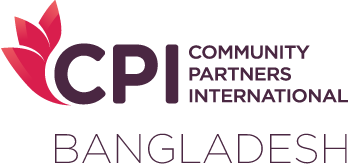
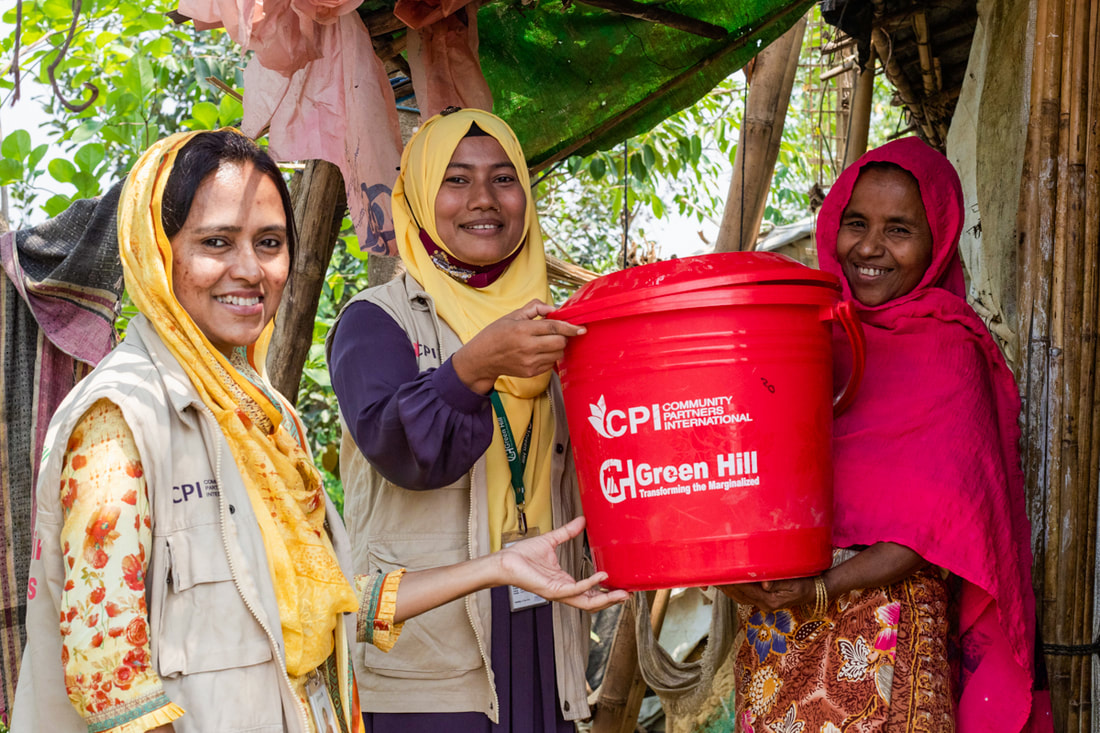
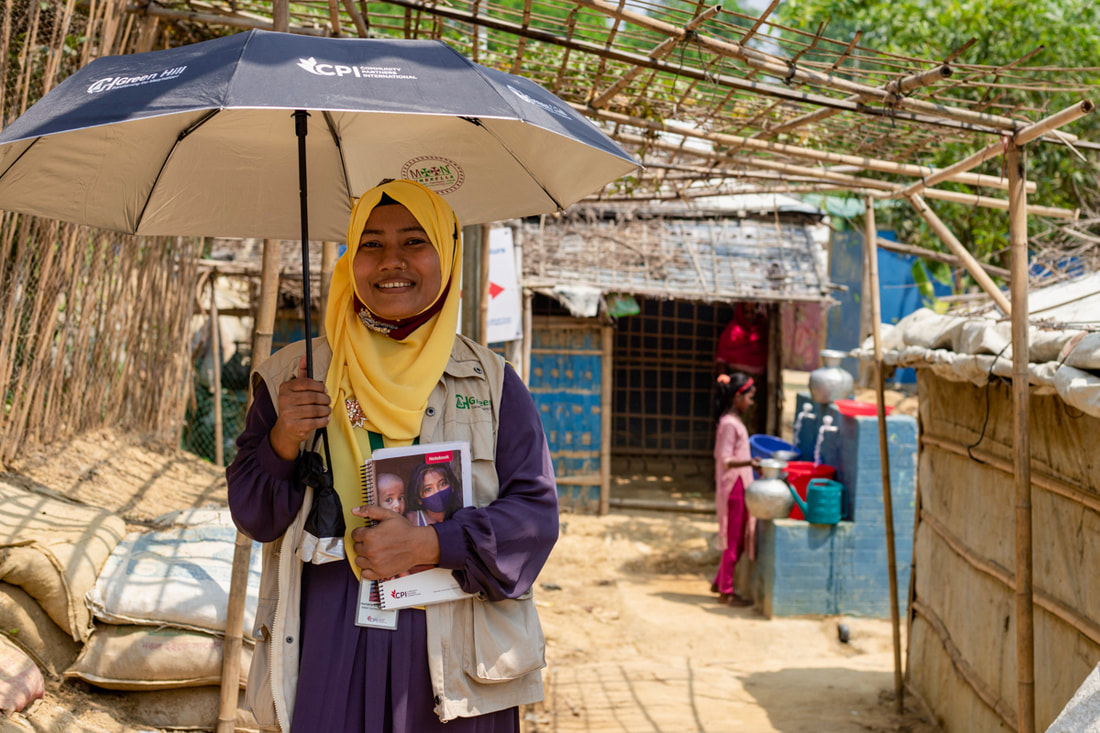
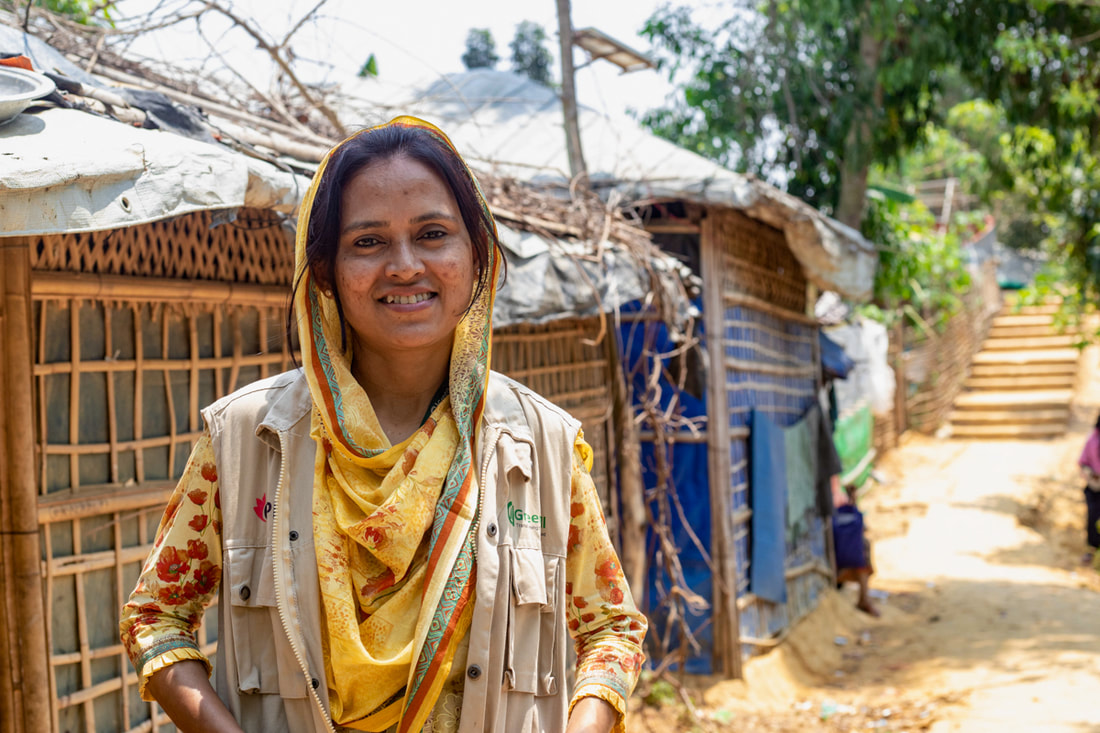
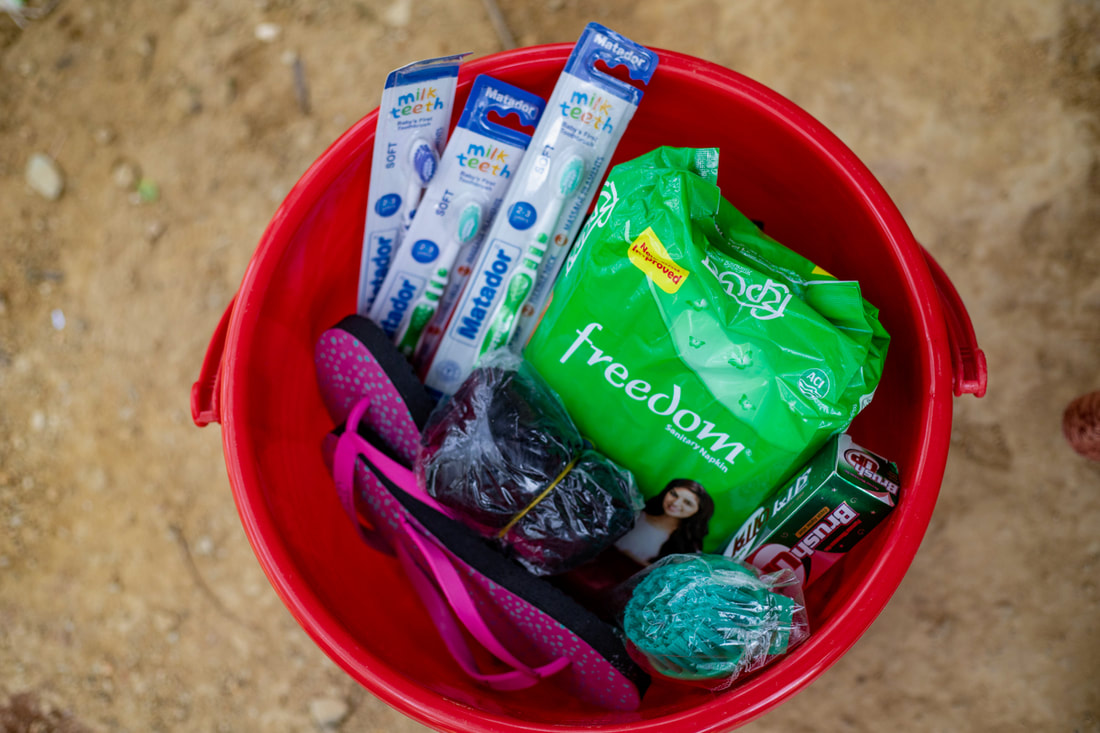
 RSS Feed
RSS Feed